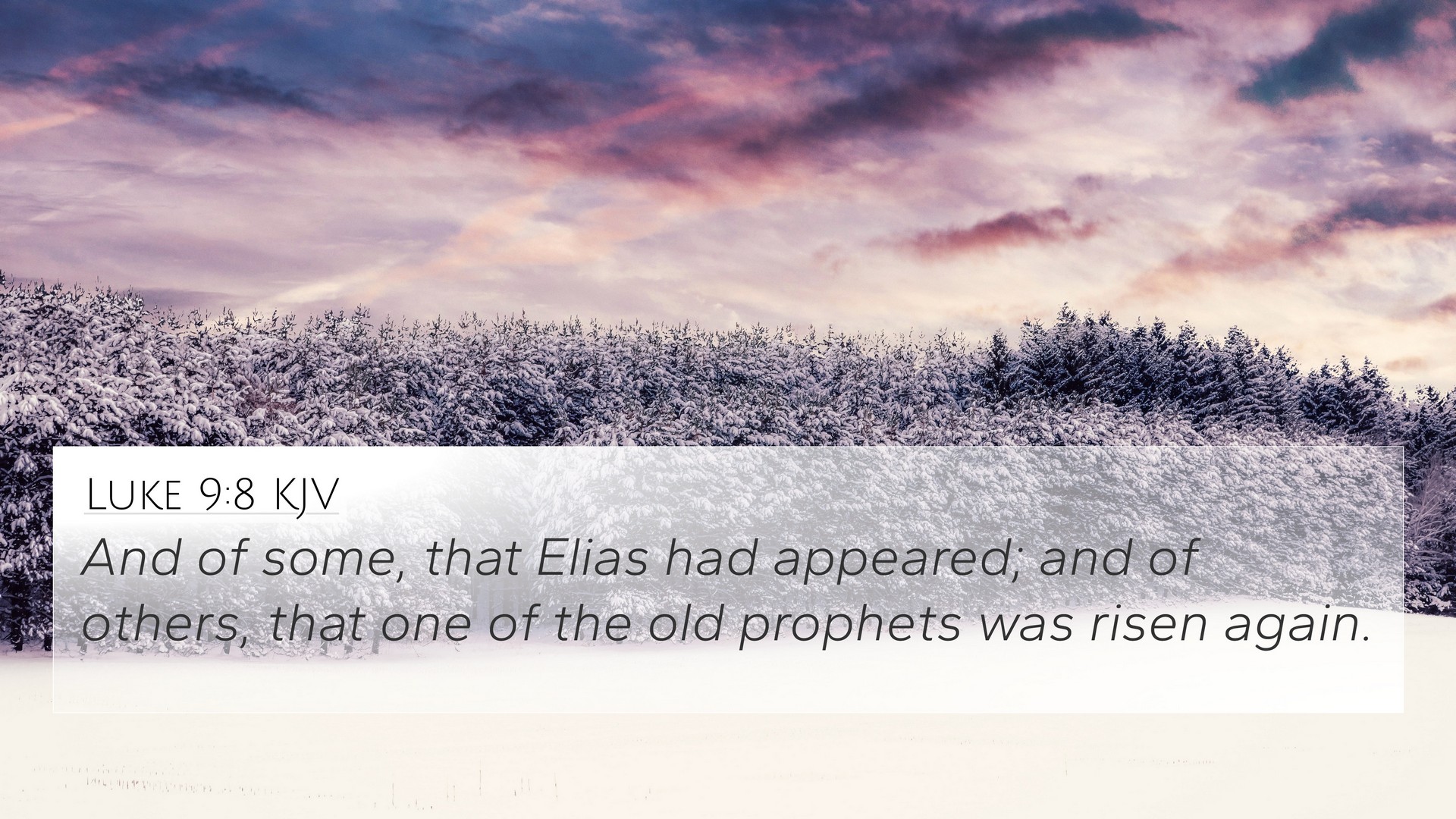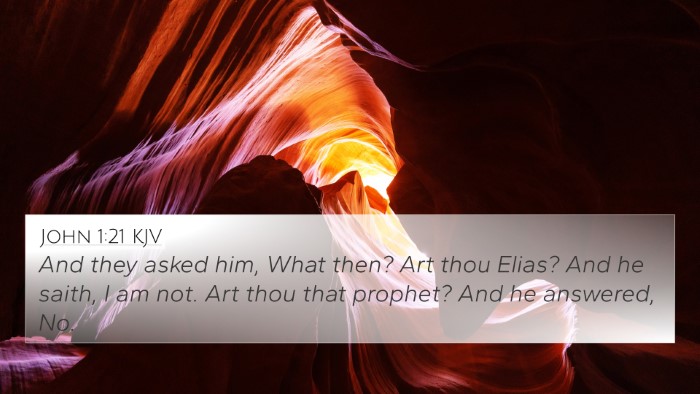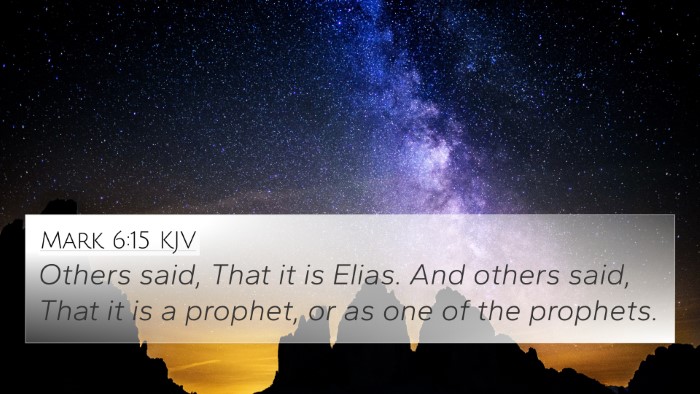Understanding Luke 9:8
Luke 9:8 states: "And of some, they believed that John was risen from the dead; and of some, that Elias had appeared; and of others, that one of the old prophets was risen again." This verse opens a fascinating discussion about the identity of Jesus and the perceptions of the people regarding His ministry. Below are summarized insights from esteemed public domain commentaries, organized for clarity and depth of understanding.
Meaning and Interpretation
The verse reveals the varying beliefs among the people about who Jesus was. Here’s a breakdown of the key points:
- Identity Confusion: The people were grappling with the various possibilities surrounding the identity of Jesus. Some thought He was John the Baptist, others speculated about the prophet Elijah, and some considered Him a resurrected prophet.
- Historical Context: This misunderstanding showcases the powerful influence of the Old Testament prophets on the Jewish populace, as they linked Jesus with revered figures from their history.
- Spiritual Significance: The differing opinions highlight the spiritual resurrection of significant biblical figures in the public consciousness, suggesting a longing for prophetic voices in a time of Roman oppression.
Commentary Insights
The following insights help illuminate the verse further:
- Matthew Henry: Henry emphasizes the notion that the public's recognition of prophetic figures reflects their spiritual yearning. He argues that the chaotic opinions about Jesus are indicative of their ignorance about His true nature as the Son of God.
- Albert Barnes: Barnes points to the significance of each hypothesis about Jesus' identity. He notes that the mention of Elijah and other prophets reinforces the continuity of prophetic ministry leading to Christ.
- Adam Clarke: Clarke elaborates on the implications of believing Jesus to be a resurrected prophet. He explains that such beliefs demonstrate a acknowledgment of the miraculous and divine nature attributed to Jesus by those who witnessed His works.
Bible Verse Cross-References
The richness of Luke 9:8 connects to several other scriptures, enhancing our understanding through Bible verse cross-references. Here are notable references:
- Matthew 14:1-2: The public confusion about Jesus’ identity is mirrored here, showing Herod’s fear that Jesus is John the Baptist resurrected.
- Mark 6:14-16: Similar accounts of people believing Jesus is connected to John the Baptist or other prophets illustrate consistent themes across the Gospels.
- Malachi 4:5–6: This Old Testament verse speaks of Elijah's return, highlighting the expectations the Jewish people had concerning resurrection and prophecy.
- Matthew 16:14: Peter's response about Jesus' identity shows the common belief among the people reflecting the earlier opinions mentioned in Luke 9:8.
- Isaiah 40:3: This prophesies a voice crying out in the wilderness, connecting to the recognition of Jesus as one sent from God.
- Luke 1:76: This speaks to John the Baptist’s role as a prophet, pivotal to understanding Jesus’ mission.
- Hebrews 1:1-2: The idea that God spoke through prophets mirrors the confusion the people have regarding Jesus — God is now speaking through His Son.
Connections Between Bible Verses
The thematic connections between scriptures help elucidate the person of Jesus and the misunderstandings surrounding His identity:
- Cross-referencing Biblical texts: Connecting the conversation around prophets—such as Elijah—with Jesus shows a continuity in Scripture that points to the divine nature of His mission.
- Linking Bible scriptures: By exploring narratives in the Old and New Testaments, we see how Jesus fulfills and transcends the roles of the prophets who came before Him.
- Comparative Bible verse analysis: Diverging views on Jesus’ identity highlight the complexity and richness of His ministry, reflecting the variety of understandings of divine intervention in the world.
Thematic Bible Verse Connections
Inter-Biblical dialogue reveals multiple layers of meaning in Luke 9:8:
- Bible verse parallels: Comparing this verse to others sheds light on the expectations of the Messiah and how Jesus' actions challenge or fulfill them.
- Scriptural cross-referencing: Utilizing tools for Bible cross-referencing allows deeper insights into the narrative by examining how various interpretations influence our understanding of Jesus.
- Interpreting Biblical themes through cross-references: The assumptions about Jesus in Luke 9:8 serve as a foundation to discuss broader themes of resurrection, prophecy, and divine identity.
Conclusion
The significance of Luke 9:8 extends beyond its narrative to introduce complex themes of identity and expectations within Scripture. As we continue to study and explore through Bible verse cross-references, we find richer meanings that connect the dots between prophetic expectation and the reality of Christ's ministry. Understanding these connections is vital for deeper engagement with the New Testament Gospels and ultimately enriches our faith.







